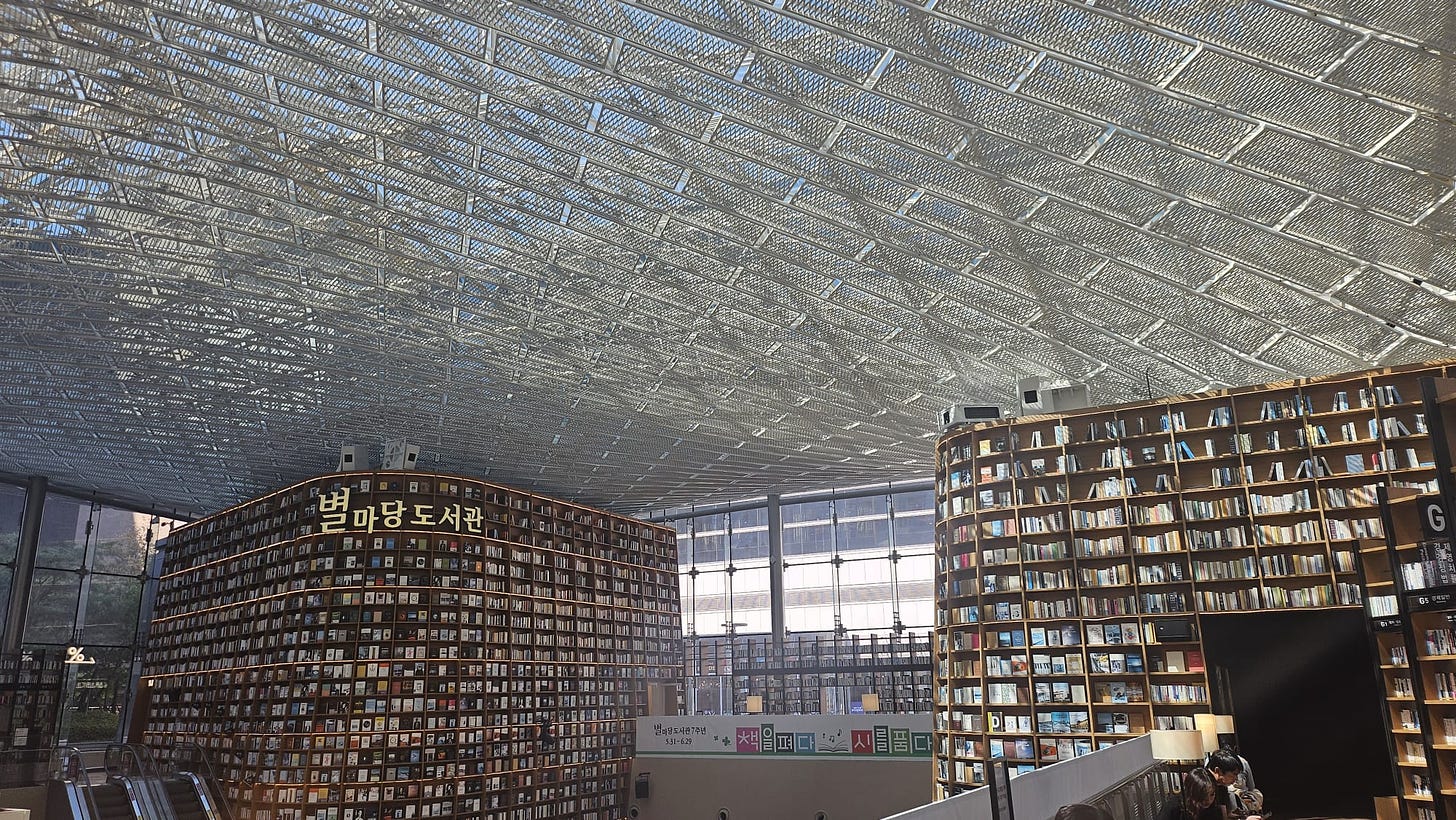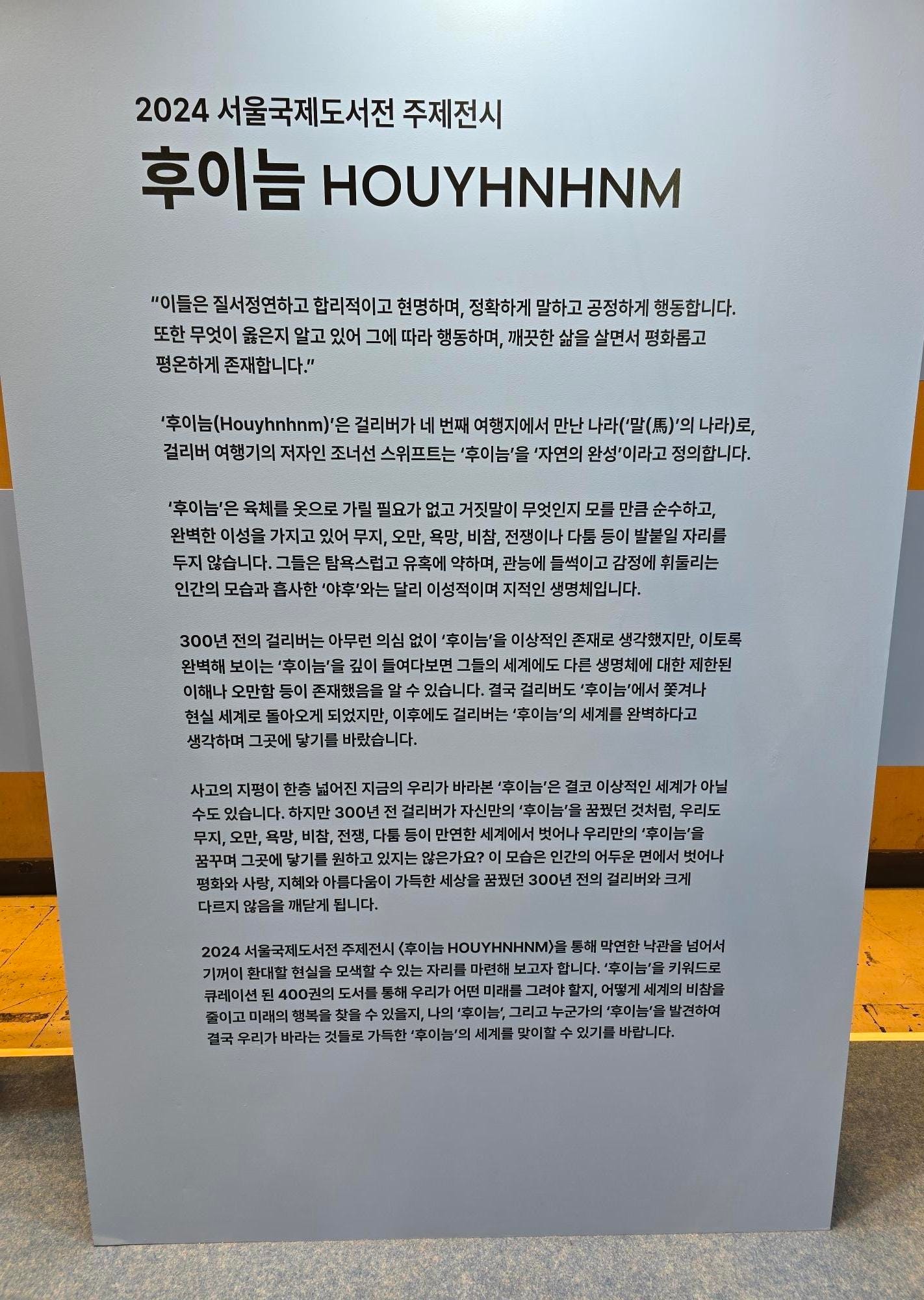Ivan is our founding director. Edwina de Charnacé is our newest literary agent.
Together they went to the Seoul Book Fair this year.
Read Ivan’s heart-felt assessment of it here.
I was gleeful at seeing so few publishers or agents from anywhere in the Western world during the whole week of the Seoul Book Fair. A scattering of Italians, a couple of French publishers, a rumoured Brit who we didn’t meet and no Americans. I loved it. What this means is that the huge investment of time we’ve made in understanding the Korean market gives us an edge compared with other UK and US agents. After numerous meetings across New York, London and Seoul to discuss Korean fiction this year I’ve encountered no one with our level of market insight and contacts. Hooray. Ok, I’ve admitted my greedy pleasure. Let’s now think bigger.
The similarities to our business in the UK are obvious.
It’s the generic differences between reading and publishing cultures which are most striking. Plus a distinct quality to certain conversations we had with Korean authors, most of whom had never met with foreign agencies before. Any writer seeking to make a living from their books needs readers in more than their home country. They were keen to understand our readers’ interest in Korean writing. And our discussions were quietly passionate.
We discussed the boundary between Literary and Mass-Market fiction (which if you know me is one of my favourite topics). It seems that Korean readers are typically more fluid and wide-ranging in their taste. We were glad to report that Young Adults in the West are comfortable with reading a mix of literary and escapist books in a way that most older people never did. A literary reader of my generation for example (perhaps especially from Ireland) might have one or two commercial fiction writers that they allowed themselves read on airplanes or on the beach. But generally they stayed high-brow. Or they might be a massive reader of genre fiction (crime or romance novels) but occasionally try something outside their favourite category. Younger readers appear to be more relaxed and experimental in their choices.
Book genres in the UK and US tend to be much more rigid e.g. Romance or Fantasy or SF or Horror or Crime or Adventure. Though we now have acceptance of the double genre category known as Romantasy. Korean authors routinely write across genres, melding say, fantasy, horror and crime into one novel. One message I take away then is that our publishers should begin to celebrate and own the multi-genre quality of much Korean fiction. Some in publishing will see this is difficult to achieve because the genres are essential to determining which bookshelf (or online category) to place a book. However, Korean fiction will still be seen as ‘special’ or distinct in the US or UK/Ireland so it ought be possible to convey that it’s sub-category is “multi-genre”.
In each meeting I am presented as the agent ‘from London’. My introductory route is to clarify that I am in fact Irish, from Dublin, living in London. Long experience has shown that being Irish offers more latitude to comment on a different country. We were always too small to do much international damage, unless you count the global proliferation of shite “Irish” pubs. For almost twenty years, I’ve represented the progressive original Korean economist Professor Ha-Joon Chang now at SOAS in London. Ha-Joon’s books have been translated into fifty-five languages (you know you’re spreading the word when your works are translated into Catalan and Mongolian). He’s sold over three million books. Ha-Joon and I discuss the many parallels between Korea and Ireland. Both countries’ histories are defined by a heavy-handed Imperial neighbour to their right whose treatment alternated between savagery and neglect. Both have gone from deep backward poverty to economic modernity and wealth in three generations. Neither had any notable natural resources to exploit. Both had reactionary, conservative and repressive cultures that are still being shaken off. Both countries now look to be in more dynamic and optimistic state than their once-overlord neighbour.
In short, I’m endlessly doing cultural comparisons and I’m also doing a meta on these cultural comparisons constantly. So imagine when I walk into the main exhibition hall of the Seoul Book Fair and see this huge sign on the wall:
“HOUYHNHNM – 2024 Seoul International Book Fair Theme Exhibition”
“Houyhnhnms” (intended to mimic the noise a neighing horse makes) are a fictional race of intelligent horses that Jonathan Swift imagined in Gulliver’s Travels. Meaning, quite suddenly to me, thousands of people are convening in the Exhibition Hall at the Seoul Book Fair under an enormous banner referencing an eighteenth-century Irish writer.
Why the theme?
Swift describes the Houyhnhnms as "the perfection of nature". They have no need to cover their bodies as they are so innocent they can't tell a lie when they hear one. They have perfect reasoning, leaving no place for ignorance, arrogance, greed, misery, war, or strife. They are rational, intelligent creatures unlike the "Yahoos" who are greedy, susceptible to temptation, and much like humans, swayed by sensuality and emotion. Whereas the Houyhnhnms are orderly, rational, and wise, and they always speak accurately and act fairly. They live clean lives and exist in peace and tranquillity.
So why the theme?
In rough translation (not mine I assure you) the Exhibition notice explains:
When we look deeper, we notice that HOUYHNHNM had its flaws, such as limited understanding of other life forms and arrogance. Eventually, Gulliver is cast out of Houyhnhnm and is brought back to reality, but even afterward, Gulliver still thinks of Houyhnhnm as a perfect place and wishes to reach it.
With our modern and widened view of the world, Houyhnhnm may not be the most ideal world. However, just as Gulliver dreamed of his own Houyhnhnm 300 years ago, aren't we also dreaming of our own "Houyhnhnm" and wanting to reach it, away from the world of ignorance, arrogance, greed, misery, war, or strife? We realize that we are not so different from Gulliver 300 years ago, who dreamed of a world full of peace, love, wisdom, and beauty, away from the dark side of humanity.
Korean culture is certainly more comfortable than ours (whether British or Irish) when talking about sweet feelings: the comfort of a teddy bear, the exquisite yearning for a pop idol. Delights we are encouraged to dismiss as ‘childish’ are enjoyed. There’s no naivety about it. We had ironic conversations about the nature of such sentiments. I can find no argument to assert why I’m too cool for simple happiness.
Does this explain the existence and proliferation of the widely popular Korean genre “Healing Fiction”?
Perhaps. Healing Fiction is lovely and warm and reassuring. But it’s also over-simplifying, idealising, and risks a Korea seen by its Western readers as a sweetly naïve happy zone rather can a complex country with its own distinctive set of challenges.
The HOUYHNHNM Exhibition presented 400 carefully chosen books laid out in an intriguing order creating a space for everyone to go beyond their vague optimism to explore a plausible future reality that we can willingly welcome.
Thanks to HOUYHNHNM, Edwina and I felt the discussion we were having about presenting our publishers with the best of Korean literary fiction, non-fiction and genre mash-up fiction, was being supported by the Book Fair itself.
If Gulliver’s Travels (published in 1726 by the Irish writer Dean Swift) can be so widely translated as to be a recognisable reference for this year’s Korean book fair, it speaks well for translated fiction everywhere.
[ENDS]





